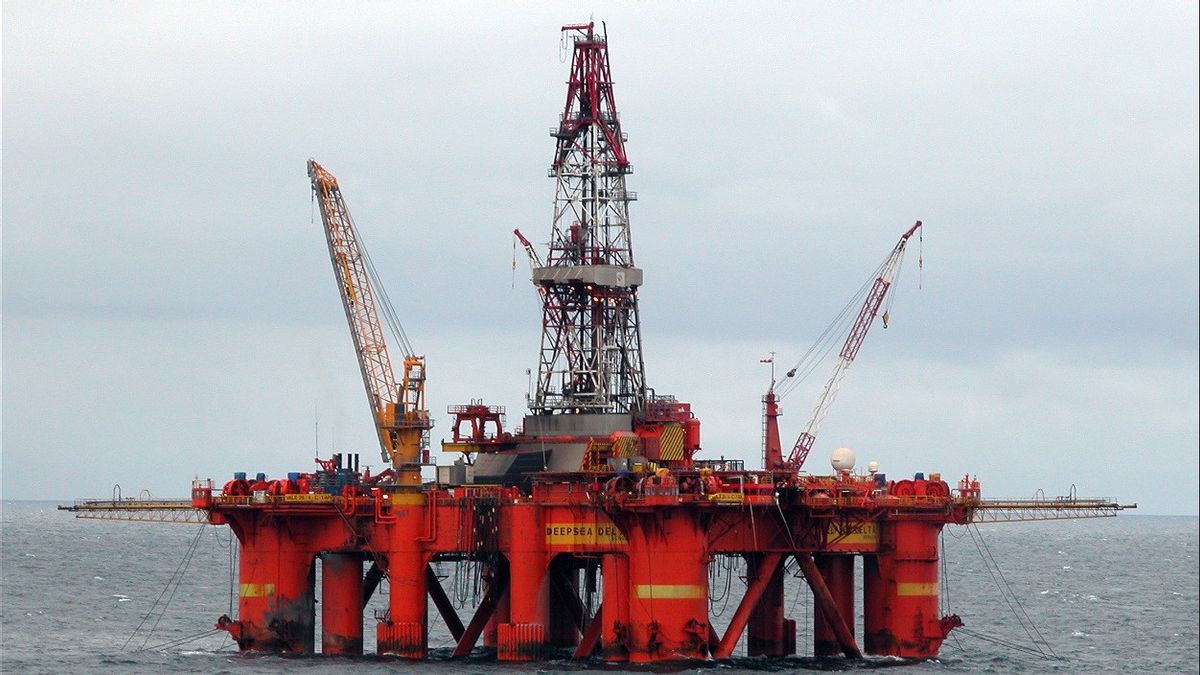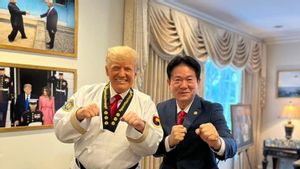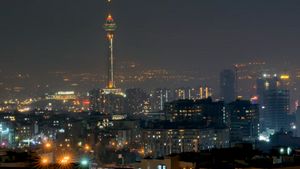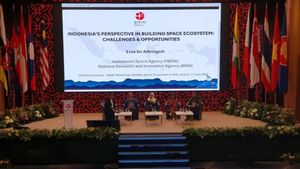JAKARTA - China told Indonesia to stop drilling for oil and natural gas, in the maritime area the two countries saw as their own during the months-long standoff in the South China Sea earlier this year, four people familiar with the matter told Reuters.
The unprecedented demand, which has not previously been reported, is increasing tensions over natural resources between the two countries in the strategic region and a volatile global economy.
A letter from a Chinese diplomat to the Indonesian Ministry of Foreign Affairs clearly told Indonesia to stop drilling on offshore rigs temporarily because it was happening in Chinese territory, according to Muhammad Farhan, a member of Commission I of the Indonesian House of Representatives who was briefed on the letter.
"Our answer is very firm, that we will not stop drilling because it is our sovereign right," Farhan told Reuters as quoted on December 2.
Meanwhile, a spokesman for the Indonesian Ministry of Foreign Affairs said: "Every diplomatic communication between countries is private and its content cannot be shared." He declined to comment further. The Chinese embassy in the Indonesian capital Jakarta did not respond to requests for comment.
Three other people, who claimed to have been briefed on the matter, confirmed the existence of the letter. Two of the men said China had repeatedly demanded that Indonesia stop drilling.
Indonesia says the southern tip of the South China Sea is its exclusive economic zone (EEZ), under the United Nations Convention on the Law of the Sea, and named the area the North Natuna Sea in 2017.
China objected to the name change and insisted the waterway falls within its vast territorial claim in the South China Sea which is marked by a U-shaped "nine-dash line", a boundary found to have no legal basis by the Permanent Court of Arbitration in The Hague, Netherlands in 2016.
"(The letter) is a bit threatening because it is the first attempt by Chinese diplomats to push their nine-dash line agenda towards our rights under the Law of the Sea," Farhan told Reuters.
China is Indonesia's largest trading partner and second-largest source of investment, making it an important part of Indonesia's ambition to become a top economy.
Indonesian leaders have remained silent on the issue to avoid conflict or a diplomatic spat with China, said Farhan and two others who spoke to Reuters.
In addition, Farhan said, in a separate letter, China also protested the mostly ground-based military exercise Garuda Shield in August, which took place during the standoff.
The drills, which involve 4.500 troops from the United States and Indonesia, have been a regular activity since 2009. It was China's first protest against them, according to Farhan.
"In their official letter, the Chinese government expressed their concern about security stability in the area," he said.
Within days of the Noble Clyde Boudreaux semi-submersible rig arriving at the Tuna Block in the Natuna Sea to drill two appraisal wells on June 30, a Chinese Coast Guard vessel was on the scene, according to vessel movement data. It was soon joined by Indonesian Coast Guard vessels.
In response to questions from Reuters, China's Foreign Ministry said China's Coast Guard vessels were "conducting normal patrol activities in waters under China's jurisdiction." It did not respond to questions about communications with Indonesia during the drilling. China's defense ministry did not respond to requests for comment.
Over the next four months, Chinese and Indonesian ships shadowed each other around oil and gas fields, often coming within 1 nautical mile of each other, according to an analysis of ship identification data and satellite imagery by the Asia Maritime Transparency Initiative (AMTI), a project. run by the US-based Center for Strategic and International Studies.
Data and images reviewed by AMTI and the Indonesia Ocean Justice Initiative (IOJI), an independent think tank based in Jakarta, show a Chinese research vessel, the Haiyang Dizhi 10, arriving in the area in late August, spending most of the next seven weeks moving slowly in the adjacent Block D-Alpha grid pattern, oil and gas reserves are also in the contested waters, worth 500 billion US dollars according to an Indonesian government study.
"Based on the pattern of movement, nature, and ownership of the ship, it seems that they are conducting a scientific survey of the D-Alpha reserves," said Jeremia Humolong, a researcher at IOJI.
On September 25, the American carrier USS Ronald Reagan came within 7 nautical miles of the Tuna Block drilling rig.
"This is the first observed example of a US aircraft carrier operating in such close proximity to the ongoing standoff" in the South China Sea, AMTI said in a report published in November.
Four Chinese warships were also deployed to the area, according to IOJI and local fishermen. A spokesman for the US Navy Carrier Strike Group 5/Task Force 70 declined to disclose the carrier's distance from the rig.
To note, China is in negotiations with 10 Southeast Asian countries, including Indonesia, to finalize a code of conduct for the South China Sea, a resource-rich waterway that carries at least USD 3.4 trillion in annual trade.
The talks, under the auspices of the Association of Southeast Asian Nations (ASEAN), resumed this year after being suspended due to the pandemic.
Beijing's increasingly aggressive stance in the South China Sea has sparked concern in Jakarta, four sources told Reuters. However, Indonesia has not yet made an official claim to the South China Sea area under UN rules, believing that the extent of its waters is clearly regulated by international law.
Chinese President Xi Jinping has tried to defuse tensions between China and Southeast Asian nations, saying at a summit of China-ASEAN leaders last month that China "will absolutely not seek hegemony or even a small bully" in the region.
SEE ALSO:
Farhan told Reuters the Indonesian government avoided tensions from a public deadlock. Its leaders want to "be as silent as possible because, if it leaked to any media, it would create a diplomatic incident," he said.
The temporary rig operates until 19 November, after which it heads to Malaysian waters. Coordinating Minister for Political, Legal, and Security Security Mahfud MD went to the Natuna Sea last week. He said his visit had nothing to do with China, but said in a public statement that Indonesia would "never give up an inch" of its territory.
Drilling was completed on time, according to a spokesman for Harbor Energy, the operator of the Tuna Block. In a similar confrontation with China in 2017, Vietnam abandoned exploration activities. Harbor Energy is expected to issue an update on drilling results on December 9.
The English, Chinese, Japanese, Arabic, and French versions are automatically generated by the AI. So there may still be inaccuracies in translating, please always see Indonesian as our main language. (system supported by DigitalSiber.id)


















